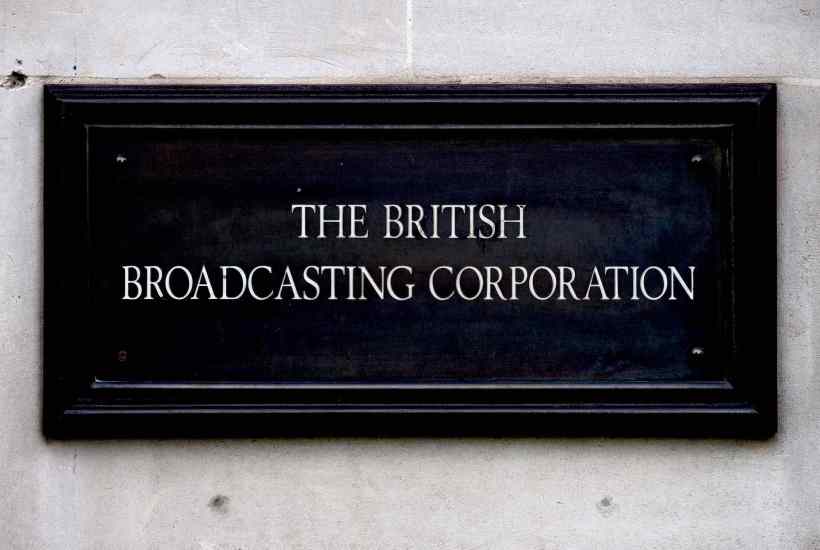Nadine Dorries came out fighting over the weekend to declare it was time to discuss new ways to fund and sell the ‘great British content’ produced by the BBC. But it turned out she had little in the way of ammunition once she reached the Commons yesterday.
There will be a two-year freeze in the £159 fee — a measure that will represent a real-terms cut in the corporation’s funding, but hardly the ‘mortal threat’ some alarmists have declared. In 2019–20, the BBC generated total income of £4.94 billion, of which £3.52 billion was public funding from the licence fee. The Department for Culture, Media and Sport said the BBC is expected to receive about £3.7 billion in licence fee funding in 2022, and the fee will rise in line with inflation for the four years from April 2024. Dorries reassured the Commons that ‘we have five or six years… plenty of time to decide what a future funding model will look like,’ and announced another review into the future of the levy.
But there is no justification for putting these decisions off any longer. We don’t need half a decade and we don’t need another review. We know what the issues are, and the government should work on a plan that can be published within six months — ideally concluding with legislation that will draw the fee to a close by 2027 when the current royal charter ends.
Otherwise we risk five years of defensive action by the BBC to cling onto its existing, outdated funding model. The levy applies to everyone who watches live television — this includes streaming services, regardless of whether they avail themselves of BBC programming. But the number of fee payers is on the decline: by March 2021, there were 24.8 million Britons coughing up for the licence fee — down from 25.5 million the year before. Younger UK viewers now watch more Netflix than BBC television. A 2021 Ofcom report warned YouTube could overtake the BBC as the most-used news source for 12 to 15-year-olds.
It was announced earlier this week that, in the US, Netflix’s ‘basic plan’ will be going up from $8.99 to $9.99 per month. Even those who believe the licence fee should continue to rise in line with inflation would have to concede that raising it by a larger margin would be politically impossible. Netflix is now spending £12.5 billion a year on content.
The trouble is, while around three-quarters of people are opposed to the licence fee, one poll in 2017 found just a quarter supported the view that it should be ‘privatised and run by private companies’. A solution, therefore, might be to fund the BBC with subscriptions by those who wish to avail themselves of its services. Subscribers could then be turned into owner-members so that the BBC would become a subscriber-owned mutual. An end date to the levy could be set, and as licences expire, individual households could renew their subscription to watch any television or digital service that suits their needs. This would be a permissive reform, one seen to allow consumers to receive for free (or through existing subscription services not funded by the licence), live channels other than the BBC.
Whatever shape the new funding model takes, many members of the British public will worry that some BBC output that is not commercially viable will be lost. But if we believe that some elements of public service broadcasting are important, why not follow a model similar to New Zealand’s NZ on Air, which allows a range of commercial channels to compete for funds to produce public service material? There’s no reason why we need a dedicated, publicly-owned television station in order to produce content that could be better and even more accessible if opened up to a wider range of production companies.
Wanting the BBC to become a commercial success and producing content its viewers value is not tantamount to wanting it axed. It is reasonable to suggest that a roadmap be laid out for completely reforming the way public service broadcasting is funded and to warn that the licence fee cannot survive in the long term.
Defenders of the licence fee often say that the BBC produces unrivalled world-class content. They also claim that scrapping the levy would be financially ruinous. Both cannot be true — if its content is as good as they say, customers in the UK and abroad will undoubtedly pay for it. If the Culture Secretary is serious about the BBC’s survival, she needs to set out a timetable for transitioning to a different funding approach that can allow the corporation to flourish and grow its revenue stream, rather than limp on with the current anachronism for years to come.
Got something to add? Join the discussion and comment below.
Get 10 issues for just $10
Subscribe to The Spectator Australia today for the next 10 magazine issues, plus full online access, for just $10.



















Comments
Don't miss out
Join the conversation with other Spectator Australia readers. Subscribe to leave a comment.
SUBSCRIBEAlready a subscriber? Log in